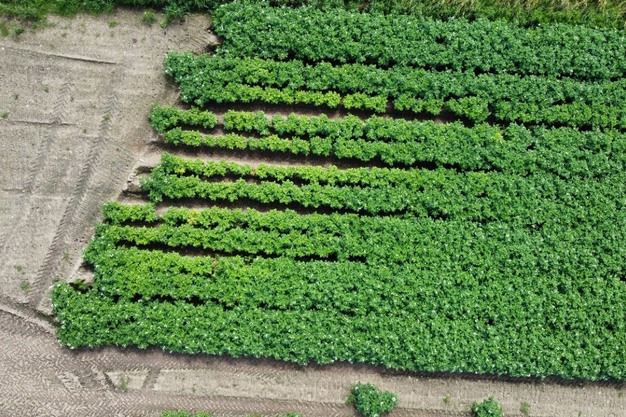The James Hutton Institute is proud to announce its participation in Crop Protection Strategies for the Transition to Environmentally-Friendly Agriculture (CROPSAFE), a €4.9 million project funded by the EU's Circular Bio-based Europe Joint Undertaking and its members (CBE JU) and led by the University of Alicante.
The four-year initiative brings together research and technology organisations to develop sustainable, bio-based pest control solutions for key food crops under threat from rising pest pressures and the phase-out of toxic pesticides. It is expected to produce a new generation of bio-based pest control tools that are both environmentally friendly and economically viable, supporting the EU's Green Deal and Farm to Fork strategies.
The Hutton is a world-renowned independent research organisation that works in collaboration with partners across the globe on pioneering projects to find solutions for the challenges posed by the climate and nature crises on the sustainability and resilience of our crops, land, natural resources, and communities. It does this through the development of transformative tools, interventions, products, and land management practices.
 © Hutton Institute
© Hutton Institute
Plant Pathologist at the Hutton, Dr Lorena Rangel, said, "It's exciting to be part of a collaborative effort with researchers across the UK and EU, all working toward finding effective biological alternatives to synthetic pesticides. This kind of joined-up approach reflects where the field is heading, especially as policy continues to drive change. Embracing sustainable and circular economy solutions is not just forward-thinking, it's becoming essential."
Hutton Plant Nematologist, Dr James Price, who is leading one of the 10 CROPSAFE work packages, said, "This project responds to a crucial requirement to manage currently unsustainable pathogen pressures using bio-based alternatives to classic pesticides that are often associated with harmful off-target effects on the wider environment.
The project will focus on three urgent crop-pest cases: Potatoes, tomatoes, and bananas.
Potatoes are threatened by the potato cyst nematode (PCN). The most effective control agent, Fosthiazate (CfS), will lose its approval in 2027.
Tomatoes face up to 65% yield losses from root knot nematode (RKN). Metham sodium (CfS), widely used against RKN, will be withdrawn this year.
Bananas are increasingly impacted by Banana Weevils (BW). The go-to pesticide, Lambda-cyhalothrin (CfS), is set to expire in 2026.
The Hutton will play a central role in laboratory testing and field trials targeting PCN in potato crops, leading efforts to evaluate bio-based solutions under UK growing conditions. Drawing on its extensive expertise in nematology and sustainable agriculture, its researchers will generate critical performance data to guide the development of effective alternatives to withdrawn pesticides.
 © Hutton Institute
© Hutton Institute
Complementary field trials for tomato and banana will be conducted by partners in Italy and Spain. Across all sites, results will be integrated into advanced decision-support tools to enable real-time, location-specific pest management strategies for farmers.
More information can be found here http://www.linkedin.com/company/cropsafe-project/
For more information:
Joyce Reid
Hutton Institute
[email protected]
+44 7931 551 988
